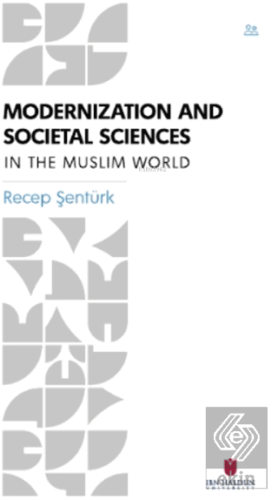
Each civilization approaches human action and explains and solves social problems in its own way. From this perspective we can say that every civilization has its own "societal sciences".
Fiqh and social sciences are two societal sciences of two different civilizations, namely the Islamic and the Western civilizations, respectively. The main subject of these two scientific traditions is "human action" ('amal). Social problems have been addressed and solved by fiqh in Muslim societies and by social sciences in Western societies. However, since the 19th Century there has been an intense struggle and mutual interaction between these two scientific traditions in Muslim societies. Western social science has conquered the domain of fiqh and attempted to perform its functions. If we examine social change in Muslim societies during the last two centuries, we will realize that the westernization movement in those societies focused mainly on social institutions and relations. However, it does not seem possible to understand westernization by ignoring the mental and cultural basis on which social institutions and relations are built.
Understanding the points of differentiation between fiqh and social sciences and the functions of these two societal sciences cannot be realized without a comparison at the level of civilizations because fiqh is the product of the Islamic Civilization and social science is the product of the Western Civilization. As Ibn Khaldun states, science is one of the aspects of civilization, hence, one of the subjects of the discipline of 'umran. Hence, in order to understand the changes in science we must first understand the changes in civilization, which they largely depend on.
Each civilization approaches human action and explains and solves social problems in its own way. From this perspective we can say that every civilization has its own "societal sciences".
Fiqh and social sciences are two societal sciences of two different civilizations, namely the Islamic and the Western civilizations, respectively. The main subject of these two scientific traditions is "human action" ('amal). Social problems have been addressed and solved by fiqh in Muslim societies and by social sciences in Western societies. However, since the 19th Century there has been an intense struggle and mutual interaction between these two scientific traditions in Muslim societies. Western social science has conquered the domain of fiqh and attempted to perform its functions. If we examine social change in Muslim societies during the last two centuries, we will realize that the westernization movement in those societies focused mainly on social institutions and relations. However, it does not seem possible to understand westernization by ignoring the mental and cultural basis on which social institutions and relations are built.
Understanding the points of differentiation between fiqh and social sciences and the functions of these two societal sciences cannot be realized without a comparison at the level of civilizations because fiqh is the product of the Islamic Civilization and social science is the product of the Western Civilization. As Ibn Khaldun states, science is one of the aspects of civilization, hence, one of the subjects of the discipline of 'umran. Hence, in order to understand the changes in science we must first understand the changes in civilization, which they largely depend on.
| Taksit Sayısı | Taksit tutarı | Genel Toplam |
|---|---|---|
| Tek Çekim | 161,70 | 161,70 |
| 2 | 84,08 | 168,17 |
| 3 | 58,21 | 174,64 |
| Taksit Sayısı | Taksit tutarı | Genel Toplam |
|---|---|---|
| Tek Çekim | 161,70 | 161,70 |
| 2 | 84,08 | 168,17 |
| 3 | 58,21 | 174,64 |
| Taksit Sayısı | Taksit tutarı | Genel Toplam |
|---|---|---|
| Tek Çekim | 161,70 | 161,70 |
| 2 | 84,08 | 168,17 |
| 3 | 58,21 | 174,64 |


























